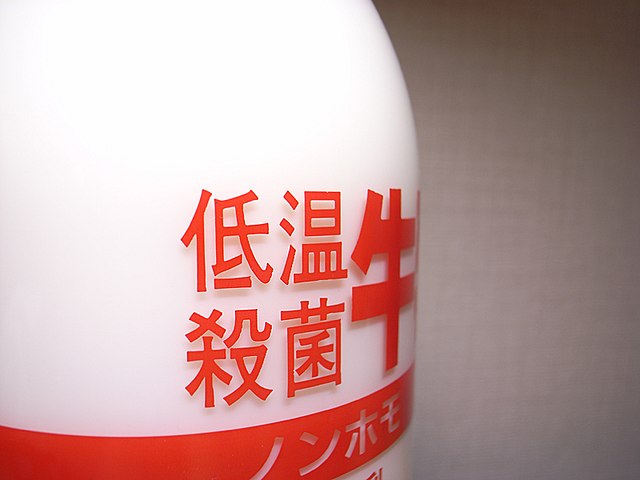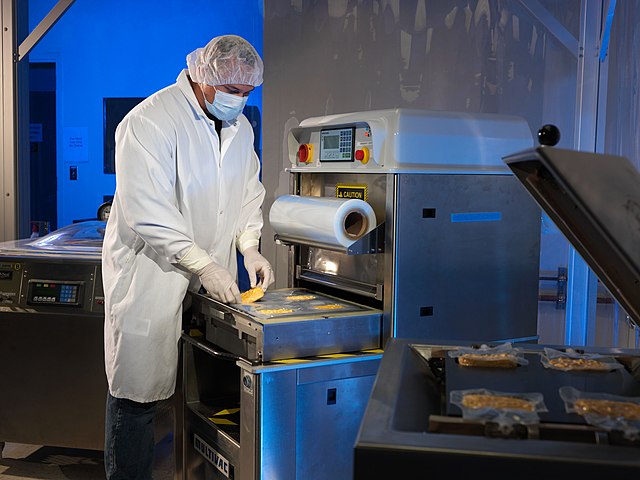In the field of food processing, pasteurization is a process of food preservation in which packaged and unpacked foods are treated with mild heat, usually to less than 100 °C (212 °F), to eliminate pathogens and extend shelf life.
Pasteurization either destroys or deactivates microorganisms and enzymes that contribute to food spoilage or the risk of disease, including vegetative bacteria, but most bacterial spores survive the process.
Pasteurized milk in Japan
A Chicago Department of Health poster explains household pasteurization to mothers.
180 kilograms (400 lb) of milk in a cheese vat
Food preservation includes processes that make food more resistant to microorganism growth and slow the oxidation of fats. This slows down the decomposition and rancidification process. Food preservation may also include processes that inhibit visual deterioration, such as the enzymatic browning reaction in apples after they are cut during food preparation. By preserving food, food waste can be reduced, which is an important way to decrease production costs and increase the efficiency of food systems, improve food security and nutrition and contribute towards environmental sustainability. For instance, it can reduce the environmental impact of food production.
A food scientist is preparing a meal for astronauts in space.
Preserved food
Bag of Prague powder#1, also known as "curing salt" or "pink salt". It is typically a combination of salt and sodium nitrite, with the pink color added to distinguish it from ordinary salt.






